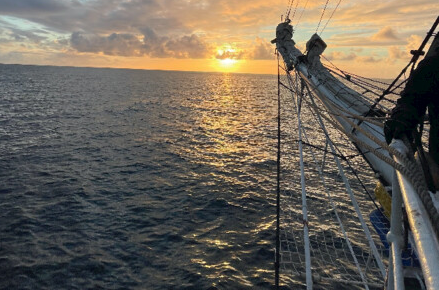
Several important legal events have happened to the ocean environment lately. The 29th of March 2023 was a historical day for the international rule of law to prevail. On this day, the United Nations General Assembly adopted a Resolution requesting an advisory opinion from the International Court of Justice to clarify states’ obligations to tackle the climate change emergency. The 4th of March represents another historic day, with an international agreement on the new legally binding instrument on the conservation and sustainable use of marine biology in areas beyond national jurisdiction. Last year, right before Christmas, on the 19th of December 2022, Parties to the Convention on Biological Diversity adopted the Kunming-Montreal Global Biodiversity Framework. Earlier the same year, a decision to work towards drafting and adopting a legally binding global plastics treaty was taken.
But can we trust the law and these new legal developments to ensure adequate protection of the environment, and our oceans in particular?
Currently, we face many several pressures and threats on our oceans, including climate change, pollution, plastic pollution, the overexploitation of resources, and the destruction of natural habitats through different human activities. Without urgent and coherent action, our oceans face an uncertain future. If we want to change this, we need to have a more critical look at law and legal frameworks. We must understand that law and legal processes can bring change. But we should also not forget that law sometimes can stand in the way of effective ocean protection.
Out of concern for our oceans, we organized a major international conference in November 2019 which lead to the recent publication ‘The Environmental Rule of Law for Oceans – Designing Legal Solutions, by Cambridge University Press, to discuss the rule of law
We ask whether the law is strong and effective enough to protect the oceans against increasing threats and pressures and what changes would be needed in the face of new developments, new challenges, and not least new knowledge. Our book looks at existing and novel pressures on the marine environment, including climate change, marine plastic pollution, and matters not yet adequately regulated, such as marine pollution from spaceflight activities. We also look at the challenge of balancing the exploitation and protection of oceans to ensure the long-term resilience of marine ecosystems. This issue often appears in the context of activities that have environmental purposes, such as marine restoration activities or marine geoengineering to abate eutrophication, but also entail some uncertain impacts on the marine ecosystem. Another important question is how we could improve implementation, compliance, and enforcement, through criminalization, litigation, or advisory opinions. The rule of law is also studied for regional seas and oceans. The book provides a variety of perspectives on the challenges and solutions to strengthening the rule of law for the Eastern Pacific, the Baltic Sea, the Arctic Ocean, Japan, and the South China Sea.
Despite the variety of pressures and threats and legal developments discussed by the authors, four key recommendations can be identified for further developments within law-making and implementation at national, regional, and global levels.
1. First of all, there is a tension between the need for flexibility and adaptivity in law and governance while the rule of law ideally requires predictability, coherence, legal certainty, stability, and accountability. As a solution, laws are often designed with a certain level of generality. However, it appears that for many specific environmental problems, a fit-for-purpose and adequate legal framework is lacking. Strengthening the rule of law should be done through laws fit to address the specific problems at hand.
2. Another challenge identified is the lack of clarity related to definitions, general provisions, and principles and how we should take decisions in the face of new scientific knowledge. Legal unclarity can stand in the way when we want to utilize new scientific knowledge related to certain technologies and activities. Enhancing the rule of law requires providing legal clarity on how to use new technologies and new scientific knowledge.
3. A third reoccurring issue is the need for cooperation and coordination to enhance the rule of law for oceans. This concerns the role of certain institutions, the need for inter-institutional integration, and the need to better define the competencies and mandates of different players in ocean governance. In particular – States as the main actors- need to share a common perception of legal obligations and a sense of legal commitment to shared values, which can only be ensured by cooperation. The newly adopted UNGA Resolution is an excellent step in that direction.
4. A final issue is the importance of including diverse actors or groups in lawmaking processes to foster the implementation and enforcement of international, regional, and local rules. This also concerns private actors and stakeholders.
To conclude, this book is not a final word on the rule of law for oceans and seeks to encourage further debate on the best legal solutions for the marine environment.
Latest Comments
Have your say!